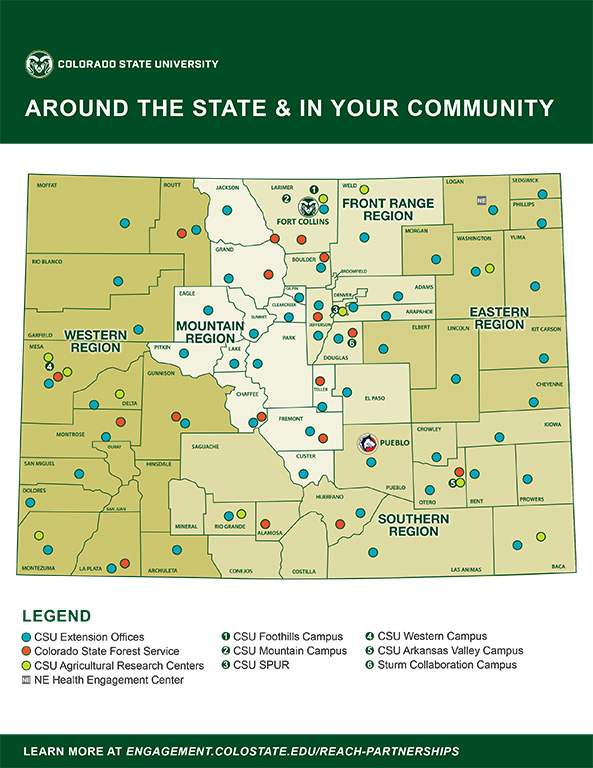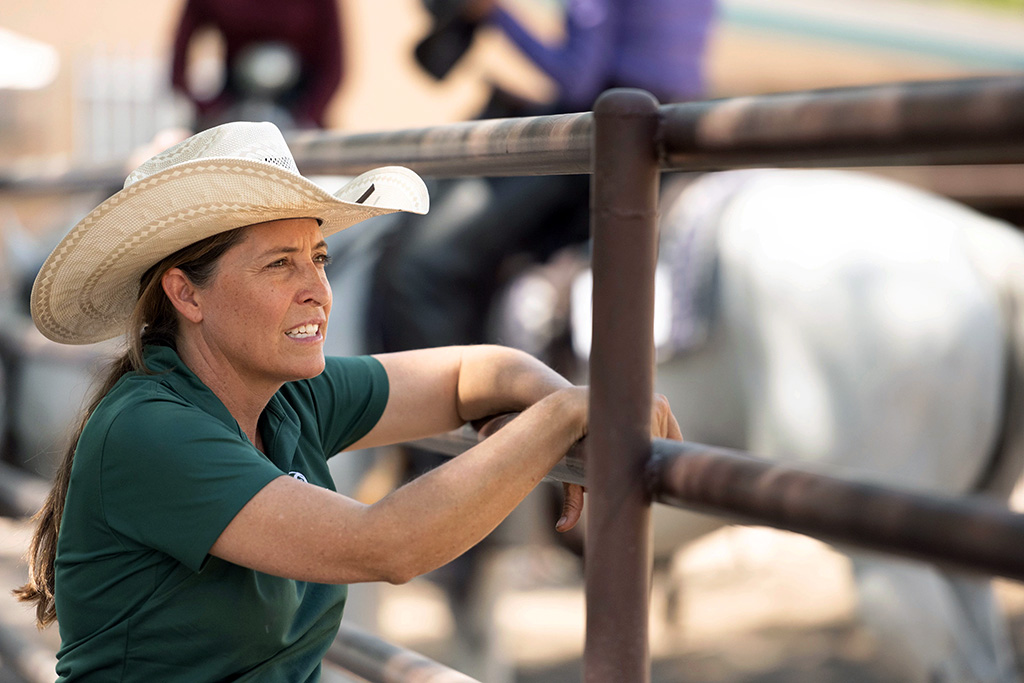
In her role as a Colorado State University regional range specialist, Annie Overlin helps landowners manage thousands of acres of range land.
“There couldn’t be a better job in my mind than working with farmers and ranchers,” said Overlin, a 1998 CSU graduate with a degree in botany who also has a masters in animal sciences and range management from the University of Nevada. “We look at grazing management, soil health work, animal nutrition and its relation to pasture health as well.”
As one of hundreds of Office of Engagement and Extension employees who work across all 64 counties to bring research-based resources to Coloradans, caring for the land is in her blood.
Overlin, who said her family has been farming and ranching for seven generations, worked in the CSU Extension booth at the Colorado State Fair. She also watched her daughter compete in the horse show.
Overlin and two co-workers in Pueblo County show just some of the increasing breadth and depth of CSU Extension, which increasingly revolves around a hot topic: Water.
“Water is life. It’s everything in Colorado,” she said. “I’m approaching it from a soil health standpoint. If we have good water infiltration when we get the rain, the rain that we get goes into the ground as opposed to diverting off somewhere.”
From CSU to each county
Water is also at the root of much of what Sherie Shaffer does as a horticulture agent and interim director for CSU Extension’s Pueblo County office. As the horticulture agent and interim director at Pueblo County Extension’s office, Shaffer manages a master gardener program with more than 50 volunteers.
“Our overall mission is to bring research-based information from the university to our local communities. It’s up to us to figure out what’s the best way to do that,” Shaffer said. “Answering questions, leading classes, writing articles; you name it. Any way to get the word out.”
Working and learning together with communities, CSU Extension’s approach evolves to serve the ever-changing needs of Coloradans.
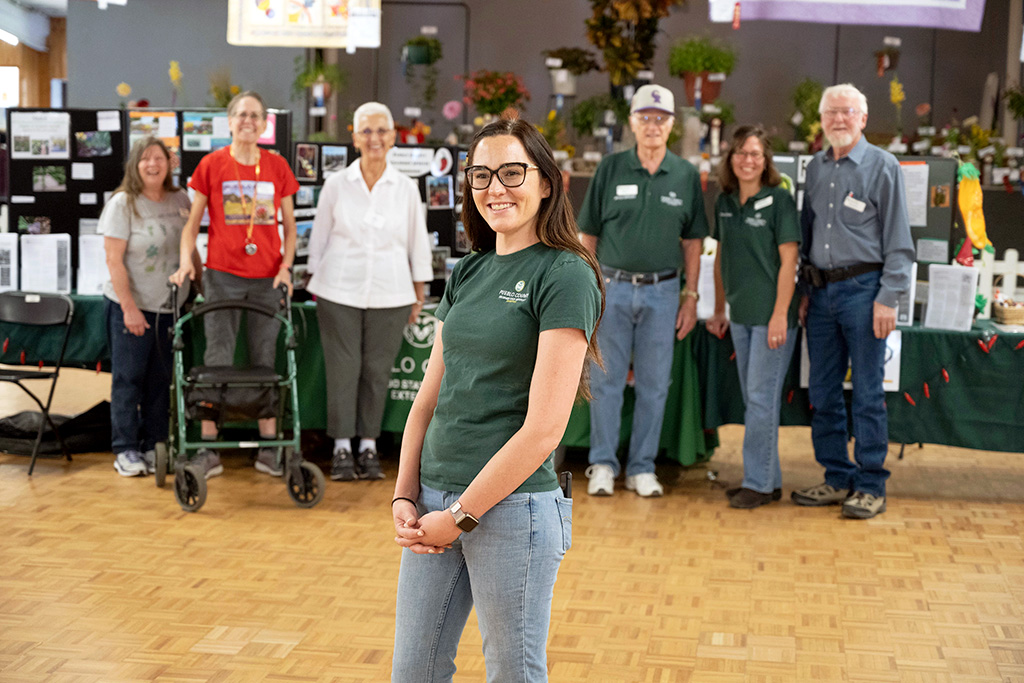
“Our role is two-fold,” Overlin said. “We take research to campus and we get that research out to our stakeholders.”
CSU Extension’s breadth of programming and resources are available for lifelong learners. They include Colorado 4-H and youth development, community and economic development, agriculture and food systems, nutrition, food safety, household and family finances, personal property management, health and well-being, livestock and range and natural resources.
“We do so many different things,” Overlin said. “From where I stand, so much of it is about expanding the longevity of agriculture in the state.”
Advice and advocacy
Kristi Bartolo, an agronomy agent who also works at CSU Extension in Pueblo County, sees her job as helping farmers, crops and the community.
“My main responsibilities are to assist farmers locally and in surrounding counties with any crop issues they may be facing and provide them with current research and scientific-based information regarding crop growth, disease and pest control, water use efficiency, field conditions and more,” Bartolo said. “Because I am working so closely with the farming community, I am also working to provide some advocacy for
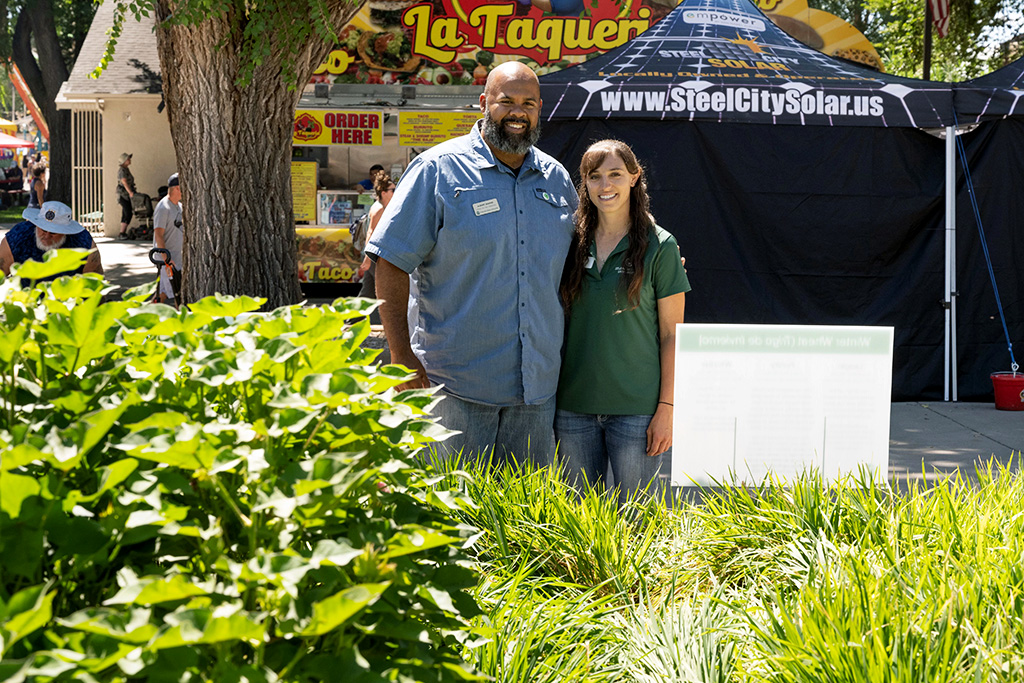
agriculture locally and bring the farming community and broader community together.”
While the fair is the “last big hurrah” at CSU’s Pueblo office, Shaffer said the year usually kicks off with a home and garden show featuring plant sales, but there also are garden tours and small booths at community events.
“Our goal is to help all kids know where their food comes from and how agriculture impacts their daily life,” Shaffer said, adding that areas of Pueblo are food deserts, where it’s challenging to find local, fresh or affordable and healthy food.
Extension’s work with Colorado 4-H is well-known, but Shaffer said CSU’s research centers play a major role in meeting agricultural production needs.
Agriculture and more
Overlin said she’s excited about trial crop experiments on farms and ranches and creating a support system addressing mental health concerns. She also participates in 4-H as a mother, not as part of her job.
Bartolo said the majority of Extension’s work is about teaching and learning.
“We are here to provide education; share scientific and research-based information that can help propel the community forward,” Bartolo said. “The hope is that the education provided will help individuals be more successful in what they are endeavoring to accomplish, whether that is winning Grand Champion at State Fair, preserving chili peppers properly, or to nurture more productive pastureland.”
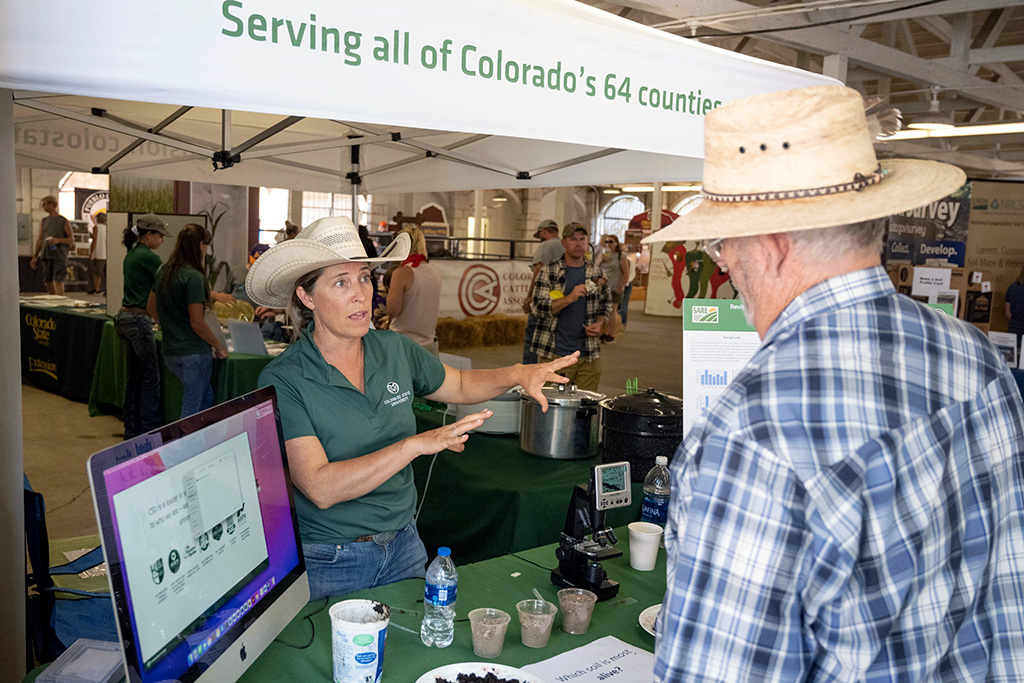
Shaffer urges anyone interested to contact their local experts. A web page shows addresses for all of the state’s Extension locations.
“There are extension offices serving every county. They’re all offering great programming and sometimes people don’t know that that’s available,” she said. “Definitely reach out and find us.”
